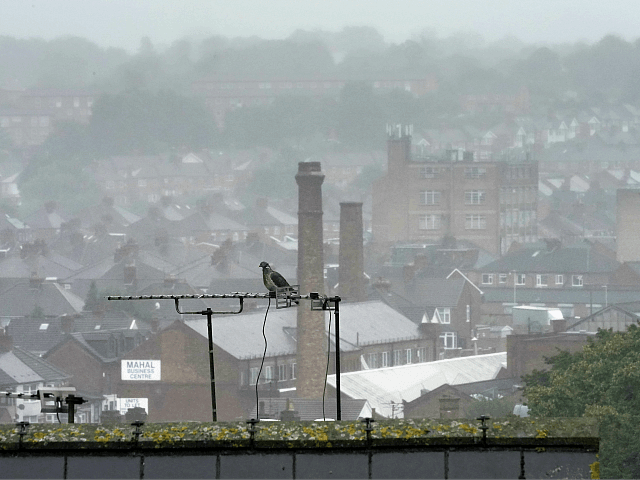A Member of Parliament has linked illegal sweatshops in Leicester, England, to the coronavirus outbreaks which have seen the city put into special lockdown measures, as a parliamentary committee takes Internet retailers employing their services to task and law enforcement carry out a spate of modern slavery arrests elsewhere in the country.
The developments follow Britain’s Home Secretary, Priti Patel, revealing that the National Crime Agency (NCA) and other law enforcement agencies have been attending premises where workers are alleged to have been forced to work through the anti-coronavirus lockdown in unsafe conditions to “assess concerns of modern slavery and human trafficking”, around the same time as a major report by the Centre for Social Justice estimated that there are at least 100,000 modern slavery victims across the country.
Boohoo, a major so-called “fast fashion” online retailer Boohoo claimed it was “shocked” by the allegations against the garment factories in its supply chain — a claim which earned it a scornful dressing down from a parliamentary committee which admonished it over working conditions in Leicester over a year ago.
“It is incredible that over a year since the committee highlighted illegal working practices in its supply chain, Boohoo has publicly denied any knowledge of what has been happening for years,” wrote Philip Dunne, the Conservative MP for Ludlow and chairman of the Environmental Audit Committee (EAC).
“It is shameful that it took a pandemic and the ensuing outrage about working practices in their supply chain for Boohoo finally to be taken to task for turning a blind eye,” he added in the EAC letter, pointing out that the committee had already pressed them on University of Leicester research dating back to 2015 which suggested “that the majority of Leicester’s garment workers were paid below the National Minimum Wage, did not have employment contracts, and were subject to intense and arbitrary work practices.”
“[L]ike a cheese that has been around for too long, something smells very bad about what is going on in this great city,” commented Andrew Bridgen, the Conservative MP for North-West Leicestershire who has estimated at least 10,000 people are ensnared in slave-like conditions in Leicester, pointing out that its “Mayor, three MPs, Police and Crime Commissioner and 96 per cent representation on the city council [are] all from the same political party” — namely the left-wing, social justice-oriented, and increasingly pro-open borders Labour party.
“People are asking ‘why Leicester?’ All the evidence that I have seen points to workers who are effectively modern slaves being put into a position where they have to choose to either work or starve during the [anti-coronavirus] lockdown,” Bridgen added in an article published on ConservativeHome, a website frequented by Tory activists and supporters.
“Leicester’s captive workforce has had to increase production by 50 per cent throughout the lockdown for their internet retailer masters, work even longer hours than normal… in factories without [Personal Protection Equipment], ventilation or any measures to reduce transmission, only to return home to chronically overcrowded accommodation,” he added, tying the sweatshops to the unusually high prevalence of the coronavirus in the city — particularly in its most diverse areas — which has seen it put back into special lockdown measures as restrictions ease in the rest of England.
“The more I look at Leicester, the more it appears that although the Labour Party is notionally in charge, they are in fact only presiding over a city where the criminals are ruling the roost through a combination of intimidation and cultural blackmail in the knowledge that the authorities are so scared of the potential accusations of racism, that they dare not challenge the Dickensian conditions and the racketeering that exist in “their part“ of city,” Bridgen lamented.
As the Centre for Social Justice report suggests, the issue of modern slavery is by no means confined to Leicester, with a series of unrelated and relatively unheralded modern slavery arrests having been reported at several locations across the country in just the last few days.
In Canterbury, for example, 21-year-olds Trevis Abiola and Javarnu McPherson have been charged with modern slavery offences including “human trafficking, concerned in the supply of cocaine and concerned in the supply of heroin” in connection with the so-called “county lines” drugs trade, according to local media.
An unnamed 33-year-old in Clacton, meanwhile, was among ten people arrested following an investigation by the Modern Slavery and Human Trafficking Unit for Essex Police “into crime groups exploiting vulnerable people by forcing them to guard cannabis grows” and charged with offences including “arranging or facilitating the travel of another person with a view to exploit, being concerned in the supply of a controlled drug, cultivation of cannabis and extracting electricity,” per the East Anglian Daily Times.
Another local report recorded the arrests of Ernest Drevenak and Veronika Bubencikova in Cambridge and Cambourne, who are accused of “five counts of holding a person in slavery or servitude, five counts of arranging or facilitating travel of another person with a view to exploitation, one count of money laundering and one count of fraud by false representation” in connection with five alleged victims who were exploited between 2014 and 2019.

COMMENTS
Please let us know if you're having issues with commenting.